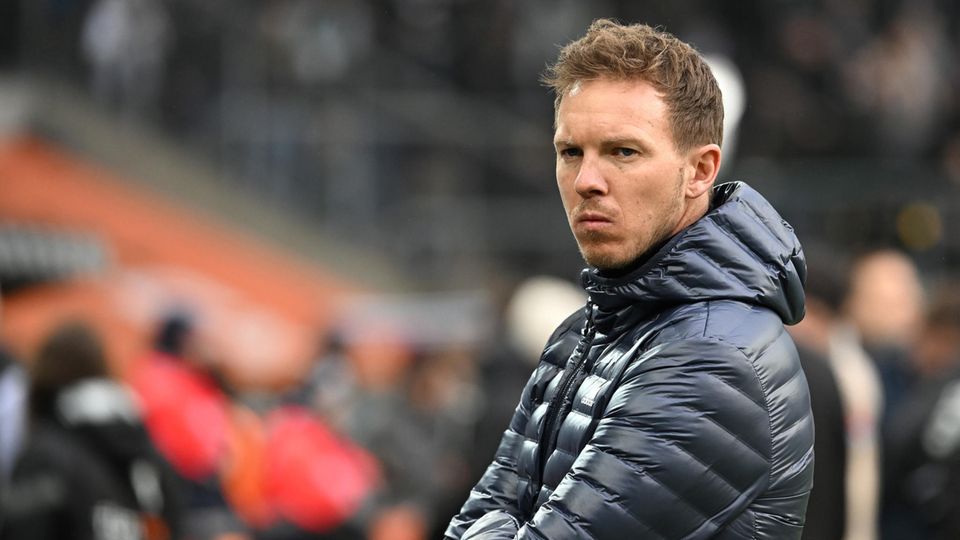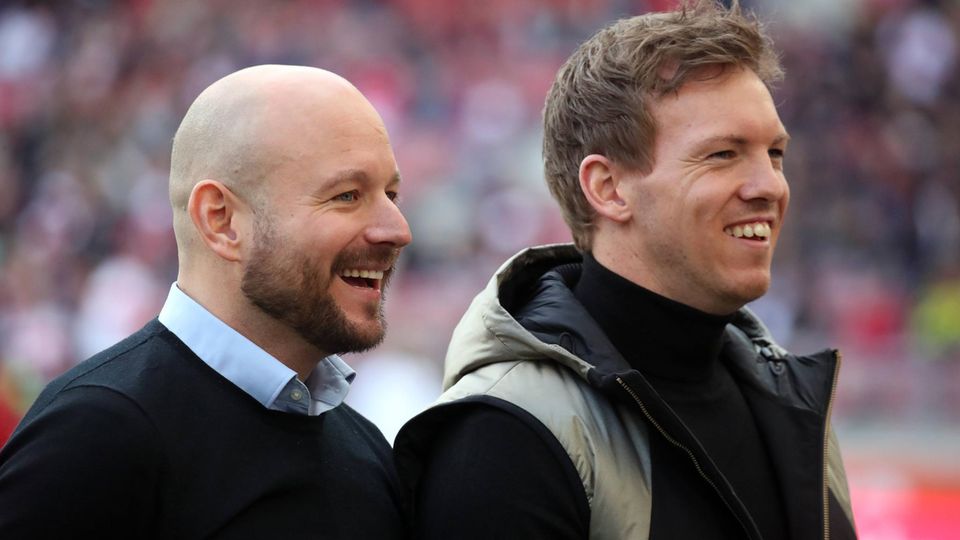National coach Julian Nagelsmann only has ten months left to prepare the national team for the European Championships. He wants to use this to free the team from the overly academic football of his predecessors Flick and Löw.
There is probably no one in the world who can bring order to a room as safely and quickly as Marie Kondo. Throw away or keep? Kondo makes the decision within seconds, and then she finds a place for the things that should stay. A place that seems almost perfect, logical and compelling – but that no one had seen before.
Kondo, 38 years old and originally from Tokyo, has mastered the art of tidying up so masterfully that her name has even made it into the English vocabulary: “to kondo” means something like “cleaning out”.
Julian Nagelsmann, 36 years old and from Landsberg am Lech, is supposed to do exactly that: clean up. He was officially introduced as the new national coach on Friday afternoon, but the title is a little misleading, because the association actually expects Nagelsmann to do their bidding. Go through all the rooms, defense, midfield and penalty area, and ask yourself whether you really still need all the stuff that has been collected by the home team Flick and Löw over the past years and decades. These triple chains, for example, jewelry that no one wears in world football anymore anyway. Or the midfield diamonds, rich in ornaments and decorations, but you hardly know where the front and back of these things are.
Julian Nagelsmann and the “simple idea”
Nagelsmann has already taken an initial inventory; he has only been under contract with the DFB since Friday morning, and he will only be able to leave the national team, this structure with its many halls and side rooms, in October, when the international matches against the USA and Mexico are scheduled. “I want to convey a simple idea,” said Nagelsmann at his presentation in Frankfurt. He called for “good, healthy aggressiveness” on the pitch and wanted to “create stress in the opponent”, which would ideally lead to “it hurting to play against us”. Nagelsmann tried to avoid any critical words about his predecessor’s tactics; He also stated that he had not seen the documentary series “All or Nothing,” which exposed Hansi Flick as an overwhelmed coach. But then Nagelsmann slipped out a sentence that can very well be read as a comment on the Flick era. After Nagelsmann once again raved about the beauty of the simple game, he concluded with the words: “We don’t want to play with 14 different basic orders.”
This is exactly what Flick had done, except that there were not 14 lineups that he experimented with in his two-year term in office, but more than 25. Flick’s constant personnel castling led to an early failure at the 2022 World Cup and to three friendly defeats in a row there Summer. But it wasn’t the embarrassing 1:4 against Japan at the beginning of September that caused the DFB to rethink that football is a pretty simple game and Flick had unnecessarily complicated it. It was the first game after Flick, the 2-1 against France.
New national coach
Always a footballer: Nagelsmann’s steep career in pictures
Anyone who was there in Dortmund saw a team that seemed redeemed. Rudi Völler was sitting in the coaching bench, who had talked the team along and given them a simple match plan, and things were running smoothly. This whole superstructure, the over-academic, often esoterically sacred nature with which Flick and Joachim Löw had overloaded the German game – Völler cleared it away in just one night. It was like speed dating with Marie Kondo.
After the France game it was also clear what profile Flick’s successor would have to have. We were now looking for a pragmatist who could remind this offensively talented team of its strengths and address its defensive deficiencies with clear instructions.
On Friday, Nagelsmann emphasized at length that he has this profile. His remarks were a praise of simplicity, which Völler liked to hear, and he himself practiced humility. The office is bigger than me, that was Nagelsmann’s message. A tone that is new for this young coach – and possibly also the result of a reflection process. Nagelsmann said he had thought about his time at FC Bayern when asked what he had done since his leave of absence in March. “I don’t want to repeat these mistakes again.”
The DFB exudes euphoria
Nagelsmann left it open exactly what fault he sees in himself. However, one insight from his short tenure at Bayern appears to be that it was a fallacy to believe that a long-term employment contract would offer job security. “I am a good example that this is not the case,” said Nagelsmann, who signed in Munich for five years in the summer of 2021. He will now be committed to the DFB for ten months, until July 2024. “Working together should create trust, not a piece of paper,” said Nagelsmann, who liked this formulation so much that he repeated it twice.
Nagelsmann’s time ends with the European Championships next year. Germany is the host (and therefore fortunately qualified), and Nagelsmann promised on Friday that he would play “attractive football that inspires people.” Of course he also wants to win the tournament, he is very optimistic and wants to “push the team positively.”
First, however, there is clean-up work to be done. On October 9th, the team sets off on a trip to the USA with two test matches in Frankfurt. It is the first step towards the European Championship, and if everything that DFB President Neuendorf, sports director Völler and national coach Julian Nagelsmann promised on Friday, namely a “wonderful tournament” in a “wonderful country,” comes to pass, then perhaps it will happen Julian Nagelsmann has an entry in the English dictionary: “to nagelsmann”, winning a game with simple means.



